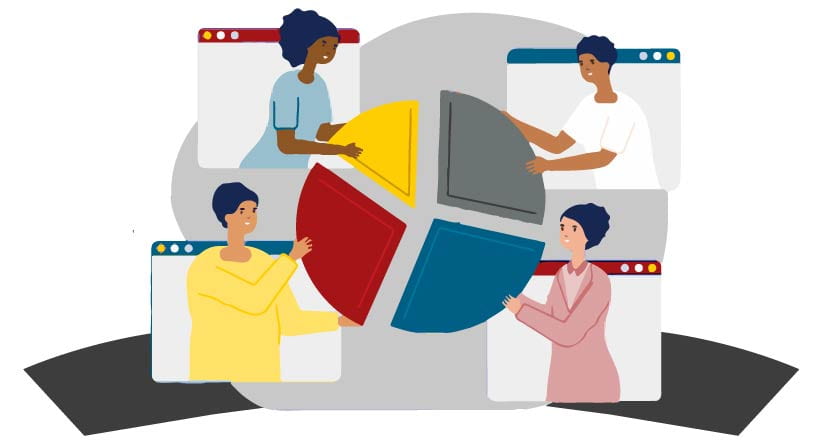This event took place on September 8, 2022 and focused on designing a collaborative data process to evaluate programs and create more equitable outcomes.
About this event
This event provided tips on how to design collaborative data processes to evaluate program effectiveness, improve impact, and promote equitable outcomes.
Presenters provided insights on
- Identifying different data skills and identities across your organization
- Identifying and engaging diverse stakeholders across the evaluation lifecycle
- Determining stakeholder roles, priorities, and motivation in working with data
Speakers include:
- Nikole Lobb Dougherty, Brown School Evaluation Center
- Amelia Parnell, NASPA
- Liz Kramer, Public Design Bureau
- Sarah Kennedy, Generate Health
Watch recording
Resources
- Data Identity Worksheet. This worksheet provides an overview of Amelia Parnell’s data identity framework and how it can be utilized by social sector organizations.
- Brown School Evaluation Center handout This handout provides an overview of stakeholder engagement and a list of useful resources.
- Identifying and Engaging Evaluation Stakeholders (by the Brown School Evaluation Center) This guide provides an in depth look at how to identify and engage stakeholders at different stages of the evaluation life cycle.
- Generate Health Story Map and Data Hub. These resources and use data to change the narrative about racial disparities in infant and maternal health in the St. Louis region.
- St. Louis Community Mobility Committee Walk Audit Tool. This resource provides information on the walk audit tool developed for the purpose of allowing anyone with a smart phone to conduct a walk audit.
Register for our next event on October 3, 2022!
You are also invited to Data and Donuts at UMSL Grand Center from 8:30-10 a.m. on Sept. 16 at UMSL Grand Center. Register to attend.
The Data for Social Impact initiative is a partnership between the Social Policy Institute at Washington University in St. Louis and the Mastercard Center for Inclusive Growth, in collaboration with an advisory committee, the St. Louis Regional Data Alliance, and data.org.

